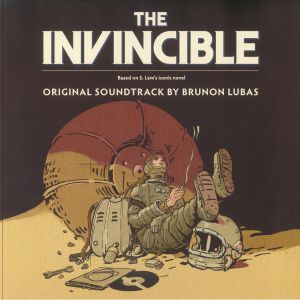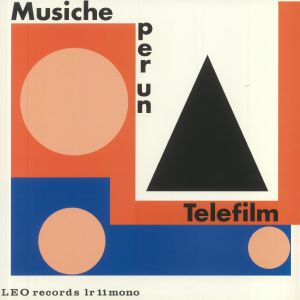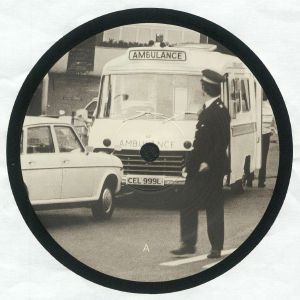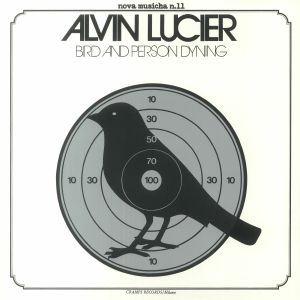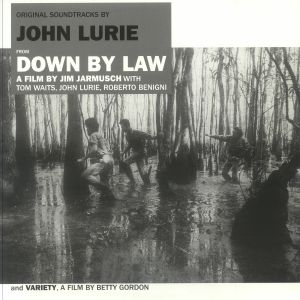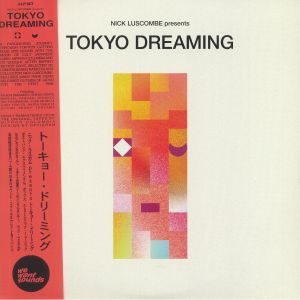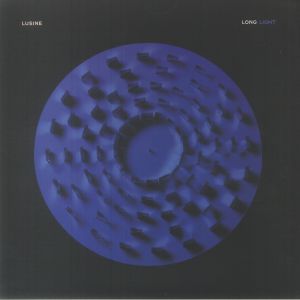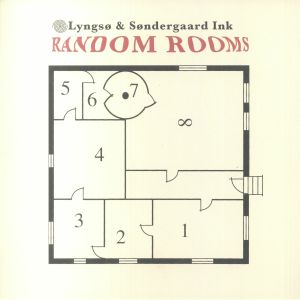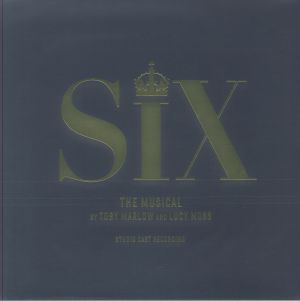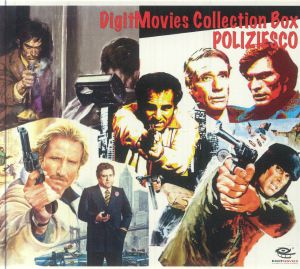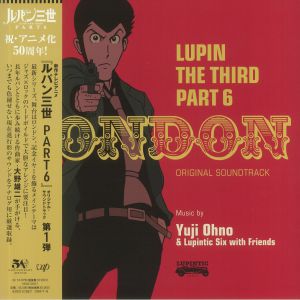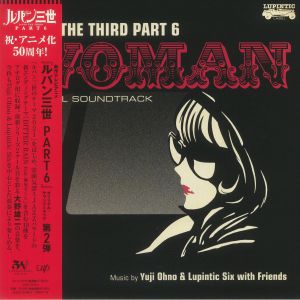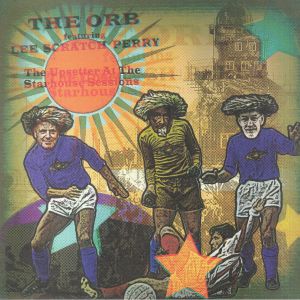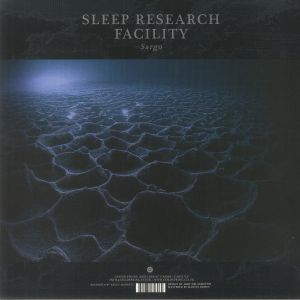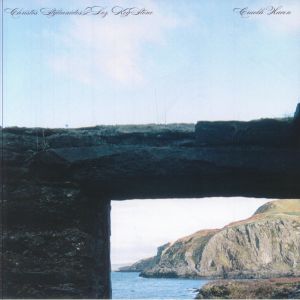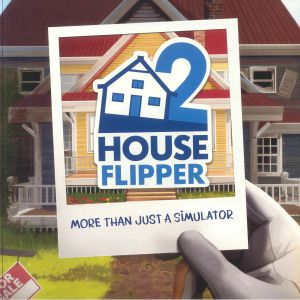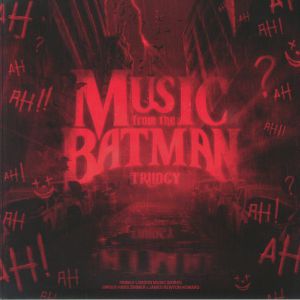Filter
Genre
在庫状況
Release Date
Featured
リリースタイトル
タグ
Back catalogue: Leftfield
Juno's full catalogue of Leftfield
アルバム
The Invincible (Soundtrack) (180 gram vinyl LP)
Cat: BSR 124. Rel: 27 Jun 24
in stock $34.75
Musiche Per Un Telefilm (Soundtrack) (reissue) (limited transparent orange vinyl LP)
Cat: REDILP 002. Rel: 23 Nov 21
in stock $32.80
Played by: Juno Recommends Experimental
in stock $37.81
Review: A reissue of an early work by acclaimed avant-gardist and pioneer Alvin Lucier, 'Bird And Person Dyning' is a spoken word and musique concrete pipe dream, spanning the furthest reaches of weirdo acousmatism, phase interference, and the transmission of sound through physical objects. Both pieces on this LP explore cyborgish concepts, the first being a grotesque of the human voice, and the second exploring the idea of an electronic bird. Lucier's standing at this point in his career puts him squarely in a cohort of pioneers who emerged in the early 1960s.
… Read morein stock $23.34
in stock $21.79
in stock $23.91
Review: What a beautiful and strange world it is, capable of presenting work like Tilt. Luke Blair is now 15 years into his productions as Lukid, and we still don't now what to expect from him, ever. Sure, there are some totems - lack of rigidity in beats and various pieces, one foot in the darkened rooms of leftfield venues, another in the serene wilderness of ambient dreams - but variety and breadth are the two operative words when considering his output. Here, then, we're invited into a place that has so many reference points it's hard to know where best to begin. The strange syncopation of 'Anatolia', which sounds like harmonies fed through crystal and then strung out over the top of fidget drums. Or maybe the twinkling, plink and plonk of 'Daisy Cutter', a subtly uplifting beat-less paradise. Possibly 'Belly', with its lo fi take on UK club. Definitely 'End Loop', and that scuzzy, emotional refrain.
… Read morePlayed by: Juno Recommends Experimental
in stock $21.97
Vengeance Is Mine All Others Pay Cash (Soundtrack) (numbered LP limited to 250 copies)
Cat: ELE 038LP. Rel: 13 Mar 25
in stock $26.97
Yule (limited translucent green vinyl LP + MP3 download code (indie exclusive))
Cat: 011586 670785. Rel: 01 Jan 90
in stock $25.57
Last Light (LP + MP3 download code in debossed sleeve)
Cat: DAIS 219LP. Rel: 09 Nov 23
Review: Dais are presenting the first vinyl edition of this 2004 album from Tor Lundvall, which was originally released as a hand-numbered CD of 955 copies on New Years Eve. Initially conceived as a delicate album of piano and electronics, Lundvall developed his ideas for Last Light into an expansive, hugely atmospheric album which captures the twilight seasons of the Northern Hemisphere in a profound manner. From faint whispers of homespun beats to moody melodic refrains and vast swathes of reverb at every turn, Lundvall draws you in close on this spellbinding record, which makes its way to wax at the perfect time of year.
… Read more in stock $24.46
Last Light (reissue) (limited translucent purple vinyl LP + MP3 download code)
Cat: DAIS 219LPC1. Rel: 13 Nov 23
in stock $27.53
Down By Law/Variety (Soundtrack) (reissue) (clear vinyl LP)
Cat: MJJ 456CC. Rel: 12 Feb 25
Review: Painter, musician, actor, director and producer. John Lurie has done a lot in his time, whether that's appearing in 19 movies, composing for 20 TV shows and films - including some of those he was the star of - or producing primitivist art work. Here, we get to engage with two of those back catalogues, even if only because these are scores to a pair of his most iconic flicks. Always cool and stripped, Lurie's stuff is the kind of experimental-leaning jazz that works so well when setting the scene. And this applies off screen, IRL too: pressing play here will only serve to create a mood wherever you are, no matter what you'r doing. One of shadowy streets, yellow hued spots, smoky barrooms and dark backrooms, a sense of after hours exploration.
… Read more in stock $23.07
Review: If you've got even the slightest interest in the cutting edge, synthesizer-heavy Tokyo scene of the 1980s, this killer compilation from Japanese music crate-digger Nick Luscombe and Wewantsounds is simply essential. It features tracks plucked from the vaults of cult labels Nippon Columbia and Better Days, with Luscombe offering up inspired selections that variously touch on deep synth-pop, electro, post-punk experimentation, jazz-funk, ambient and what would now be classic as Balearica. It's such a good collection that we're finding picking highlights difficult, though our current faves include the disco-tinged punk-funk of Juicy Fruits' 'Jenie Gets Angry', the slow-motion jazz-funk of Yumi Murata, Chiko Asamoto's smooth and sensual synth-pop, and the synth-reggae eccentricity of Akira Sakata.
… Read morePlayed by: Ex-Friendly (Truth & Lies Music), Ciel
in stock $36.98
in stock $25.86
All Worlds (limited translucent green vinyl LP with obi-strip)
Cat: SBA 10LPC3. Rel: 06 Mar 25
in stock $26.13
LUSTMORD / VARIOUS
The Others: Lustmord Deconstructed (Shadow Edition) (limited trifold 3xLP + MP3 download code)
Cat: PEL 183V. Rel: 01 Jun 22
in stock $23.55
Next World Sound Series Vol 2 (gatefold silver vinyl 2xLP + insert)
Cat: HYPSPLP 010. Rel: 06 Feb 24
Review: "The Next World Sound Series is a collection of work by contemporary sound artists working in long form instrumental composition and translated to the tangible medium of vinyl. These modern day offerings capture the analog quality and experience of last century electronic recordings, presented to you with today's technological advances in home playback, for your environmental listening pleasure." Or so say heads at the iconic and truly enigmatic label Dark Entries of this latest addition to their catalogue. A collection of work that spans the strangely frantic sci-fi tones of 'Oberenginen 0930' to the almost monastic drone of 'Soma', dubbed and muffled drums and vocals on 'Lixsm', club-ready broken beats of 'Destruct', and the evocative futurist refrains and samples of 'John Gore'. As expansive as it is exploratory and adventurous, you'll need to set aside some serious listening time for your first play here.
… Read morein stock $29.63
All You Need Is Death (Soundtrack) (red vinyl LP + insert)
Cat: INV 314LP. Rel: 09 May 24
in stock $21.10
Random Rooms (LP + postcard)
Cat: SCR 001. Rel: 28 Mar 23
Review: Danish artists Niels Lyngso and Morten Sondergaard initially bonded over their mutual love of DIY electronic music experiments, before realising that they were both poets. On the same day in 1992, they both released their debut poetry books and this collaborative album - a now sought-after obscurity that has been remastered and reissued by brand-new imprint Sunny Crypt. It's a fascinating and surprisingly on-point collection that effortlessly flits between keyboard solo-sporting instrumental street soul (the deliciously loved-up 'Dromte Mig En Drom'), tactile, organ-sporting slo-mo synth-pop ('Variete'), beat-free synth-tango ('Tango Del Amor'), poodle perm-sporting Scandinavian metal ('Vagvisa'), music concrete ('Edektronika', 'Babylon Gebbesogt') and hard-to-pigeonhole electronic soundscapes ('No. 8').
… Read more in stock $30.59
Toby MARLOW / LUCY MOSS / VARIOUS
Six: The Musical (Studio Cast Recording) (Soundtrack) (gatefold white vinyl LP in debossed spot-varnished sleeve)
Cat: 6IX 001V. Rel: 21 Aug 24
in stock $40.88
Digitmovies Collection Box Poliziesco (5xCD box set (no sound files available))
Cat: SPDM 024. Rel: 19 Dec 24
Da Corleone A Brooklyn (CD 1)
La Polizia Accusa: Il Servizio Segretouccide (CD 2)
La Banoa Del Gobbo (CD 3)
Camorra (CD 4)
Genova A Mano Armata (CD 5)
in stock $38.99
Andrew Nolan & Like Weeds (cassette)
Cat: IC NOLANWEEDS. Rel: 14 Jun 22
in stock $20.00
Lupin The Third: Part 6: London (Soundtrack) (limited gatefold LP + poster with obi-strip)
Cat: VPJG 31017. Rel: 11 Apr 22
in stock $48.92
Lupin The Third: Part 6 Woman (Soundtrack) (limited gatefold LP + poster with obi-strip)
Cat: VPJG 31018. Rel: 11 Apr 22
Played by: LEGO EDIT
in stock $41.37
The ORB feat LEE SCRATCH PERRY
The Upsetter At The Starhouse Sessions (Record Store Day RSD 2023) (limited 180 gram orange vinyl LP)
Cat: COOKLP 858. Rel: 11 May 23
in stock $43.36
in stock $30.87
Shogun (Soundtrack) (gold vinyl LP + booklet with obi-strip)
Cat: MBM 009. Rel: 13 Sep 24
in stock $46.15
Video Game LoFi: Yoshi (Soundtrack) (limited 180 gram vinyl LP)
Cat: CURE 0006. Rel: 26 May 23
Review: Nokbient and Save Point's Video Game LoFi: Yoshi is a playful and charming electronic covers tribute to the classic video game character. A mix of chiptune-inspired synths and lo-fi beats, crafted delicately and softly for the modern listener, combine to create this lovely ode to everybody's favourite green, giant-nosed reptile. Yoshi's greatest character themes - including those from Mario Kart, Super Mario World, and Yoshi's Story - all combine in an unequivocally cute mood here.
… Read morein stock $28.02
Sargo/Posidonia (limited LP)
Cat: CSRLP 0000317. Rel: 17 Apr 23
in stock $24.19
Review: You don't need to know that Craobh Haven was made during a one week residency at a tiny cabin in a remote Scottish village of the same name. One play through of the latest stunner to land on the ever-excellent ambient institution SWIMS and it'll feel like you were there in person. A witness to the creation of this strangely natural-feeling, highly technically-crafted, six tracker. Everything about the work by London-based musician and visual artist Loz Keystone and Glaswegian synth explore and jazz trumpeter Christos Stylianides feels in the right place. Its warm and fuzzy but vast and windswept. It's avant garde and abstract, but rounded and complete. It's incredibly inviting and slowly hypnotic. Distant samples of inaudible chatter and looped melodic refrains. Distorted walls of noise masking the patient power of aching brass. You get the point.
… Read more in stock $22.23
La Sacree Grole (reissue) (LP + insert)
Cat: AZMLP 55. Rel: 12 Nov 24
in stock $24.81
The Shell That Speaks The Sea (LP + MP3 download code)
Cat: RM 4205. Rel: 07 Sep 23
in stock $35.58
Die Dreigroschenoper (gatefold 180 gram audiophile vinyl LP)
Cat: MOVCL 021. Rel: 10 Jun 16
in stock $30.92
The Hollywood Sound (limited 180 gram audiophile gold vinyl 2xLP + insert)
Cat: MOVATM 420C. Rel: 08 Oct 24
in stock $46.43
House Flipper 2: More Than Just A Simulator (Soundtrack) (white vinyl LP in die-cut sleeve)
Cat: BSR 125. Rel: 27 Jun 24
in stock $20.04
Music From The Batman Trilogy (red & black marbled vinyl 2xLP)
Cat: DFLP 40. Rel: 28 Mar 24
Review: Let's face it, Hollywood director Christopher Nolan broke the mould with his re-envisioning of Batman. Taking things closer to the original comic books, themselves forced to 'go soft' by censors in the early-1950s, his films payed direct tribute to the saga's direction from the mid-1970s onwards. A trilogy of movies that were visually arresting, tonally dystopian, and viciously unhinged. It's not clear if we'll ever get a superhero (or anti-hero) film series of that class and calibre again, the world on screen so immersive you quickly feel like a Gotham native. A big part of that universe-building comes through the music, which enlists two of the greatest names in the history of soundtracks to help weave the tales. Hans Zimmer has composed for more than 150 films, James Newton Howard in excess of 100. This compilation of their shared caped crusader efforts proves why they're so well respected.
… Read more in stock $31.41

 USD
USD






